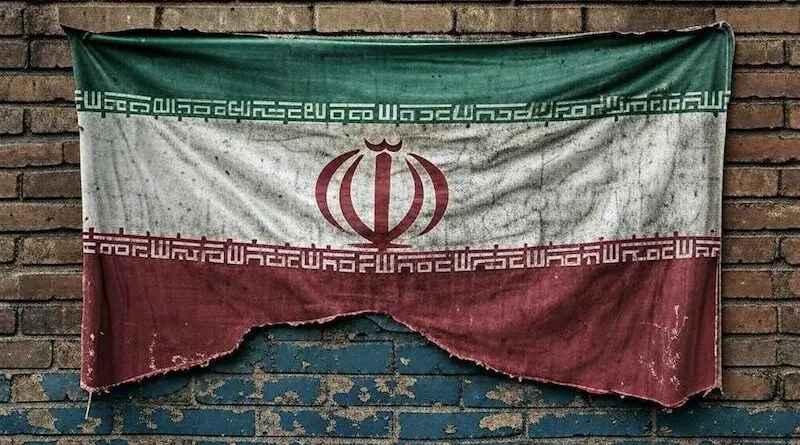
The Islamic Republic, long sustained by repression and violence, is now drowning in a crisis of internal security breaches and the death of its core ideology—Velayat-e Faqih (Guardianship of the Islamic Jurist).
This crisis stems not only from external conflicts but from a deep internal collapse within the regime, which has lost legitimacy and functionality even among its most loyal institutions, such as the IRGC. The sound of this regime’s collapse can now be heard from Tehran to the farthest provinces.
Security Breaches: The Achilles’ Heel of Khamenei’s Rule
The regime’s security vulnerability is not a recent phenomenon nor solely tied to tensions with Israel. This crack began to widen years ago, particularly after the bloody uprising of 2022. While Khamenei’s security forces tried to silence the people through violence, internal fractures within key institutions grew—often unnoticed by intelligence agencies.
On August 11, 2024, after the assassination of Ismail Haniyeh in Tehran, Le Figaro exposed this reality:
“The Islamic Republic has consistently failed to embrace ideological moderation or political reform…”
This damning statement struck at the very heart of Velayat-e Faqih, revealing that Iran’s regime is collapsing from within, more so than from any foreign threat.
IRGC: From Iron Fist to Security Liability
Once considered the unshakable stronghold of Khamenei, the Islamic Revolutionary Guard Corps (IRGC) has now become the regime’s greatest vulnerability. Initially designed to suppress domestic uprisings and expand Iran’s regional influence, the IRGC has been hollowed out by internal infiltration. This has forced Khamenei to swallow the bitter truth of strategic defeat.
Le Figaro noted:
“The assassination of Haniyeh in Tehran exposed the limits of the IRGC’s supposed power. Protecting him was their responsibility, and his death revealed the extent of infiltration within their ranks.”
Even state-affiliated outlets like Khabar Online and HamMihan were compelled to admit the presence of spies inside the regime’s most sensitive institutions.
Ministry of Intelligence and IRGC Intelligence: Gateways to Infiltration
Delphine Minoui of Le Figaro, highlighting the shock of Haniyeh’s assassination, wrote:
“The precision of the data used in the operation leaves no doubt about insider involvement.”
Quoting UN researcher Abdolrasoul Divsallar, the report emphasized:
“Rivalry between the Ministry of Intelligence and the IRGC’s intelligence unit has become a gateway for infiltration.”
Even former Intelligence Minister Ali Younesi had warned years ago:
“Security infiltration within Iran’s sensitive institutions—including the IRGC and the Intelligence Ministry—is so deep that top officials should fear for their own lives.”
This internal rivalry has not only weakened regime security but has opened the door to foreign intelligence influence.
The Death of an Ideology: When the Regime Turns on Itself
Australian academic Kylie Moore-Gilbert, in her Le Figaro piece, highlighted a dangerous trend:
“IRGC intelligence agents obsessively target domestic political activists, falsely accusing them of espionage instead of identifying actual foreign spies.”
This paranoia has turned the regime into its own worst enemy. Mass arrests following the latest flare-up with Israel—allegedly to uncover “infiltrators”—reflect not strength but a broken and desperate system, both ideologically and structurally.
A Lifeless Ideology at the Heart of the Regime
Security breaches are only part of the story. The deeper crisis is the collapse of the Velayat-e Faqih ideology, which no longer holds sway even within the regime’s most hardline institutions, like the IRGC. Once the backbone of the regime’s legitimacy, this ideology has become its own contradiction—alienating even former loyalists.
Khamenei, who invested everything into this now-burned-out concept, is left clutching a hollow shell of power that is losing its last breath.
The People: The Real Force for Change
What Khamenei and his regime consistently ignore is the unstoppable force of the Iranian people. Decades of resistance—from bloody uprisings to nationwide protests—have shown that the people will not surrender to tyranny.
As the revolutionary alternative has repeatedly stated, the path to change does not lie in prayer or foreign aid, but in the will of the people, the quiet fury of a nation that has suffered for forty years, and the power of organized resistance. The Iranian people, through their long struggle, will be the ones to bring down this corrupt regime.
Uprising: The Only Path to Liberation
Security infiltration and ideological collapse are just symptoms of a decaying regime nearing its end. The Iranian people—alongside the organized movement for freedom—are prepared to bury this rotting system.
The final uprising, rooted in unity and revolutionary determination, will not only overthrow the Velayat-e Faqihregime but will pave the way for a free and just future in Iran. Today, more than ever, the voice of the people roars:
“We exist. We fight. We will win.”
